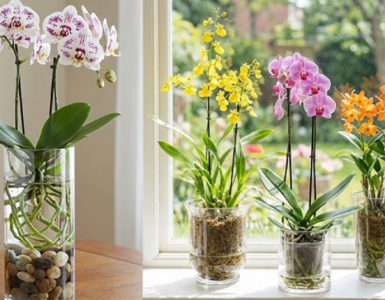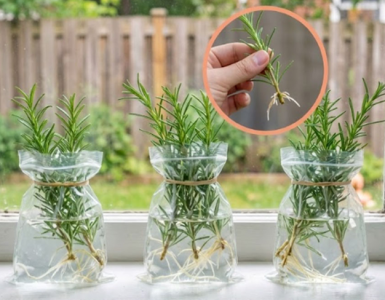Ribwort plantain (Plantago lanceolata), also known as narrowleaf plantain, is a perennial herb commonly found in meadows, lawns, and along roadsides. Although often considered a weed, ribwort plantain has been used for centuries in traditional medicine for its numerous health benefits. This article explores the facts and health benefits of ribwort plantain, highlighting why this unassuming plant deserves a place in your natural medicine cabinet.
Facts about Ribwort Plantain
Botanical Characteristics:
Scientific Name: Plantago lanceolata
Family: Plantaginaceae
Appearance: Ribwort plantain has long, lance-shaped leaves with prominent veins (ribs) running parallel along their length. The plant produces small, inconspicuous flowers on tall, slender spikes.
Habitat:
Ribwort plantain is native to Europe and Asia but has spread to many parts of the world, including North America. It thrives in a variety of soil types and is commonly found in grassy areas, along roadsides, and in disturbed soils.
Historical Use:
Ribwort plantain has been used for centuries in traditional medicine across various cultures. It was prized by the ancient Greeks and Romans for its medicinal properties and continues to be used in herbal remedies today.
Health Benefits of Ribwort Plantain
- Anti-Inflammatory Properties
Ribwort plantain is known for its potent anti-inflammatory effects, making it useful for treating various inflammatory conditions.
Uses: Apply crushed leaves or plantain extract to reduce inflammation and soothe conditions like arthritis, gout, and joint pain.
- Wound Healing
The plant has remarkable wound-healing properties due to its antimicrobial and anti-inflammatory compounds.
Uses: Crush fresh leaves and apply them directly to cuts, scrapes, insect bites, and minor burns to promote healing and reduce the risk of infection.
- Respiratory Health
Ribwort plantain is commonly used to treat respiratory conditions such as coughs, bronchitis, and asthma.
Uses: Prepare a tea from the leaves to soothe sore throats, reduce coughing, and alleviate bronchial congestion.
- Digestive Health
The herb is beneficial for digestive health, helping to soothe and heal the gastrointestinal tract.
Uses: Drinking ribwort plantain tea can help relieve symptoms of gastritis, ulcers, and irritable bowel syndrome (IBS). It can also act as a mild laxative, promoting regular bowel movements.
- Skin Care
Ribwort plantain is effective in treating various skin conditions due to its soothing and healing properties.
Uses: Use plantain-infused oil or cream to treat conditions such as eczema, psoriasis, acne, and dermatitis. The anti-inflammatory and antimicrobial properties help reduce redness, itching, and irritation.
- Immune System Support
The plant contains vitamins and minerals that support overall immune function.
Uses: Regular consumption of ribwort plantain tea or supplements can help boost the immune system, making it more effective at fighting off infections.
How to Use Ribwort Plantain
- Tea
One of the simplest ways to enjoy the benefits of ribwort plantain is by making tea.
Preparation: Steep fresh or dried leaves in hot water for 10-15 minutes. Strain and drink up to three times a day to soothe respiratory and digestive issues.
- Poultices
For external use, ribwort plantain poultices can be applied to wounds and inflamed areas.
Preparation: Crush fresh leaves and apply them directly to the affected area. Cover with a clean cloth or bandage and leave for a few hours or overnight.
- Infused Oil
Ribwort plantain-infused oil can be used for various skin conditions.
Preparation: Fill a jar with fresh or dried leaves and cover with a carrier oil such as olive or coconut oil. Seal the jar and let it sit in a warm, sunny spot for 2-3 weeks. Strain the oil and store it in a dark, cool place.
- Salves and Creams
Ribwort plantain can be made into salves and creams for easy application.
Preparation: Combine plantain-infused oil with beeswax and essential oils to create a soothing salve for skin conditions and minor injuries.
Precautions
While ribwort plantain is generally safe for most people, it is important to take some precautions:
Allergies: Some individuals may be allergic to ribwort plantain. Perform a patch test before using it extensively.
Pregnancy and Breastfeeding: Consult a healthcare provider before using ribwort plantain if you are pregnant or breastfeeding.
Medication Interactions: Ribwort plantain may interact with certain medications. Consult your healthcare provider if you are taking any prescription drugs.
Ribwort plantain is a versatile and valuable herb with a wide range of health benefits. From its anti-inflammatory and wound-healing properties to its ability to support respiratory and digestive health, this humble plant offers a natural remedy for many common ailments. Incorporate ribwort plantain into your natural health regimen to harness its full potential and enjoy the numerous benefits it has to offer.






Add comment